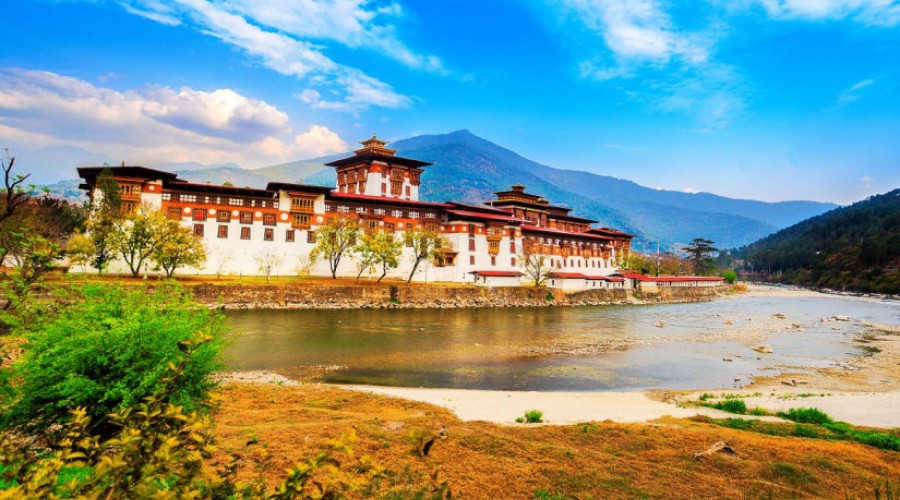Bhutan a Champion of Sustainable Tourism
Published on 18th May, 2017 by Tshering Dorji Bhap

My little country Bhutan is sandwiched between the two giant nations of the world, China in the north and Indian in the south. To the world, it is known as the land of happiness and is recognized as the only carbon negative country in the whole world. In Bhutan, all the natural elements like mountains, rivers, rocks and even the tress have been revered and considered sacred for centuries as the abode of local deities and gods. Such beliefs have helped the people in natural conservation efforts. Conserving the natural environment is one of the pillars of the Gross National Happiness, a gift from His Majesty King Jigme Singye Wangchuk to Bhutan and to the world at large. The unique developmental philosophy founded by His Majesty the king was to strive for wholesome development by putting people at the center of it without compromising basic human values in such a way that natural balance was respected. Bhutan has a clearly established framework for the development of tourism underpinned by the country’s Gross National Happiness.
The principle of High-Value, Low-Impact Tourism was introduced to Bhutan in 1974 as a part of a visionary modernization and economic development plan. Thus, the government has set a mandatory minimum daily tariff, with an objective of maximizing foreign exchange earnings while minimizing the potentially adverse cultural and environmental impacts from mass tourism.
Not only does the guiding policy of tourism growth in Bhutan has undoubtedly contributed to the unique tourism brand on the world forum but also plays a very important role in generating employment opportunities and the country’s revenue. It is the second highest revenue generator and has created a lot of employment opportunities through the development of locally owned and operated private sectors and stake holders. Almost 80% of Bhutan’s population live in rural areas and are mostly engaged in the agricultural sector, tourism has contributed the farmers to earn from tourist transport, farm stay, portage and the promotion of indigenous handicrafts.
The main tourism attractions in my country is our unique culture and the simple way of life, the historic monuments and its religious festivals, and the pristine environment. Protecting the nature and our culture is part our value system and is an important aspect of the traditional way of life in my country and the tourism policy reflects these concerns. The policy of imposing US$ 250 per person per day tariff includes the royalty (US$65) charged by the government, food, accommodation, local transport and guides. This has succeeded in providing a source of government income for free education and healthcare, building tourism and transport infrastructure, while at the same time making Bhutan an exclusive and distinctive destination.
With the strength of the country’s natural assets, Tourism in Bhutan has diversified from mostly cultural tourists, sightseers and trekkers to special interests, such as sports and adventure tourism to ecotourism and nature-based tourism. The country’s rich natural environment, including more than 770 species of birds and over 165 species of animals, and the government’s conservation policy make Bhutan a prime destination for ecotourism.
To provide value for the money paid by the travelers, all tour operators and tour guides are licensed by the Tourism Council of Bhutan and the hotels are categorized by the council. With due consideration of the government of Bhutan and its people, sustainability of tourism will flourish for sure.



